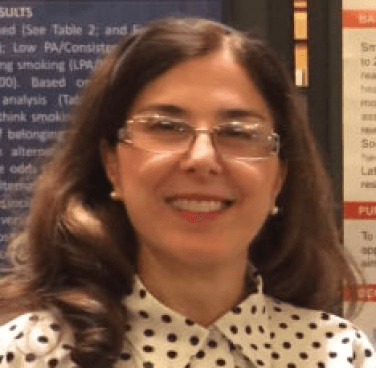Contact: Will Sansom, 210-567-2579, sansom@uthscsa.edu
SAN ANTONIO (Feb. 16, 2023) — The University of Texas Health Science Center at San Antonio (UT Health San Antonio) will receive $4 million from the Cancer Prevention and Research Institute of Texas in the state agency’s latest round of funding announced Feb. 15.
A $2 million CPRIT recruitment award will bring Lu Wang, PhD, to UT Health San Antonio. Wang, currently at the University of Pennsylvania, will join UT Health’s Department of Biochemistry and Structural Biology as assistant professor and serve as an investigator in the Sam and Ann Barshop Institute for Longevity and Aging Studies.
“We are thrilled to have Dr. Lu Wang join our faculty,” said Reuben Harris, PhD, chairman of the Department of Biochemistry and Structural Biology. “She brings an exciting cancer research program and impactful portfolio of cutting-edge technologies to our institution.”
“Dr. Wang’s work bridges aging to cancer,” said Patrick Sung, DPhil, professor of biochemistry and structural biology and interim executive director of the Mays Cancer Center at UT Health San Antonio. “Her recent studies have focused on epigenetics and aging. Dr. Wang is also the recipient of a highly competitive National Institutes of Health Pathway to Independence reserved for outstanding early stage postdoctoral researchers.”

Patricia Chalela, DrPH, an investigator with the Institute for Health Promotion Research (IHPR) at UT Health San Antonio, will receive $1,992,330 in CPRIT funding to support a five-year study of Quitxt, the IHPR’s culturally appropriate mobile smoking cessation program.
“Quitxt blends bilingual text and social media messaging for smoking cessation tailored to the language and culture of young adult smokers in our vulnerable region of South Texas,” Chalela said. She is associate professor in the Department of Population Health Sciences within UT Health San Antonio’s Joe R. and Teresa Lozano Long School of Medicine.
To study Quitxt effects, the IHPR team will recruit 1,200 young adult (ages 18-29) Latino Spanish- and English-speaking smokers over the five-year study interval in South Texas. The team will conduct a randomized, controlled trial to compare rates of smoking cessation in two subsets:
- The intervention group will receive the innovative Quitxt text messaging or social media chat mobile service.
- The usual care group will receive abbreviated text messaging with smoking cessation-related content and referral to the Texas Department of State Health Services (TDSHS) cessation program Yes Quit (yesquit.org).
“We will measure effects online at the time of enrollment and again one, three and six months later,” Chalela said. “We will validate reports of smoking cessation via biological tests for those who report smoking cessation at those intervals.”
The researchers expect that the group receiving the Quitxt intervention will achieve significantly higher smoking cessation rates than the group receiving usual care.
“This study will expand research on the health of young adult Latinos by testing an innovative, mobile, and culturally and linguistically appropriate intervention to reduce smoking among young adult Latino smokers by enhancing their capacity to initiate and maintain cessation,” Chalela said.
“Moreover,” she added, “this study will advance public health by testing the effectiveness of a scalable, evidence-based, easily disseminated and adaptable intervention with potentially broad national reach to help young adults stop smoking and reduce smoking-related cancer and chronic disease complications and deaths and their associated health care costs.”
IHPR Director Amelie G. Ramirez, DrPH, professor and chairman of population health sciences in the Long School of Medicine, issued a direct public appeal. “There’s no better time than now to stop smoking with help from Quitxt,” she said. “Quitting smoking is proven to improve your health, increase your life span and save money. Anyone interested in quitting smoking should try Quitxt.”
To join Quitxt in English, text “iquit” to 844-332-2058. To join Quitxt in Spanish, text “lodejo” to 844-332-2058.
The University of Texas Health Science Center at San Antonio (UT Health San Antonio), a primary driver for San Antonio’s $44.1 billion health care and biosciences sector, is the largest academic research institution in South Texas with an annual research portfolio of $360 million. Driving substantial economic impact with its six professional schools, a diverse workforce of 7,900, an annual operating budget of $1.08 billion and clinical practices that provide 2.6 million patient visits each year, UT Health San Antonio plans to add more than 1,500 higher-wage jobs over the next five years to serve San Antonio, Bexar County and South Texas. To learn about the many ways “We make lives better®,” visit UTHealthSA.org.
The Mays Cancer Center, home to UT Health San Antonio MD Anderson Cancer Center, is one of only four National Cancer Institute-designated Cancer Centers in Texas. The Mays Cancer Center provides leading-edge cancer care, propels innovative cancer research and educates the next generation of leaders to end cancer in South Texas. Visit www.UTHealthsaMDAnderson.org.
The Institute for Health Promotion Research (IHPR) investigates the causes of and solutions to the unequal impact of cancer, chronic disease and obesity among Latinos in San Antonio, South Texas and the nation. The IHPR, founded in 2006, is based at The University of Texas Health Science Center at San Antonio.
Stay connected with The University of Texas Health Science Center at San Antonio on Facebook, Twitter, LinkedIn, Instagram and YouTube.



